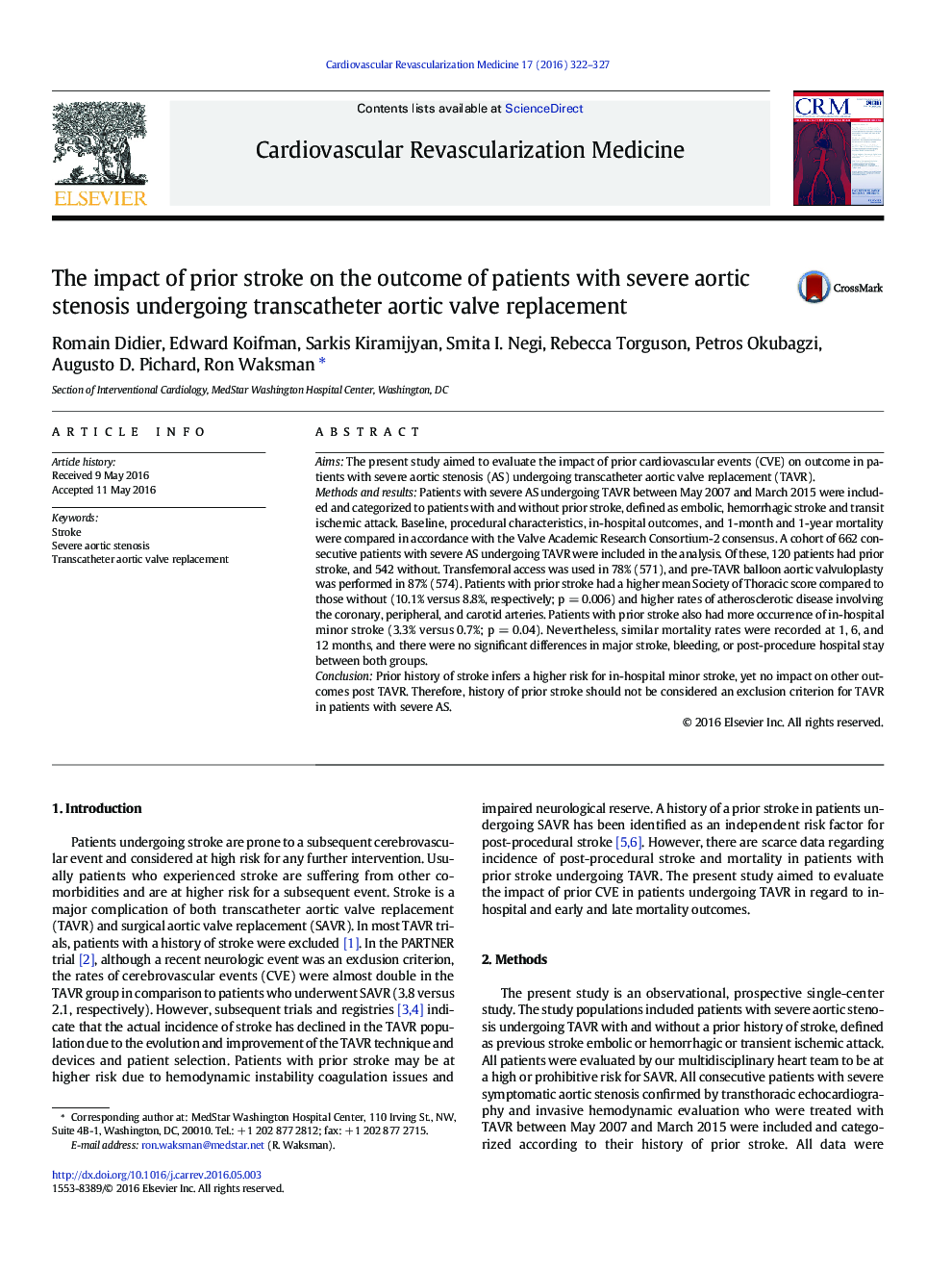| Article ID | Journal | Published Year | Pages | File Type |
|---|---|---|---|---|
| 2836859 | Cardiovascular Revascularization Medicine | 2016 | 6 Pages |
AimsThe present study aimed to evaluate the impact of prior cardiovascular events (CVE) on outcome in patients with severe aortic stenosis (AS) undergoing transcatheter aortic valve replacement (TAVR).Methods and resultsPatients with severe AS undergoing TAVR between May 2007 and March 2015 were included and categorized to patients with and without prior stroke, defined as embolic, hemorrhagic stroke and transit ischemic attack. Baseline, procedural characteristics, in-hospital outcomes, and 1-month and 1-year mortality were compared in accordance with the Valve Academic Research Consortium-2 consensus. A cohort of 662 consecutive patients with severe AS undergoing TAVR were included in the analysis. Of these, 120 patients had prior stroke, and 542 without. Transfemoral access was used in 78% (571), and pre-TAVR balloon aortic valvuloplasty was performed in 87% (574). Patients with prior stroke had a higher mean Society of Thoracic score compared to those without (10.1% versus 8.8%, respectively; p = 0.006) and higher rates of atherosclerotic disease involving the coronary, peripheral, and carotid arteries. Patients with prior stroke also had more occurrence of in-hospital minor stroke (3.3% versus 0.7%; p = 0.04). Nevertheless, similar mortality rates were recorded at 1, 6, and 12 months, and there were no significant differences in major stroke, bleeding, or post-procedure hospital stay between both groups.ConclusionPrior history of stroke infers a higher risk for in-hospital minor stroke, yet no impact on other outcomes post TAVR. Therefore, history of prior stroke should not be considered an exclusion criterion for TAVR in patients with severe AS.
